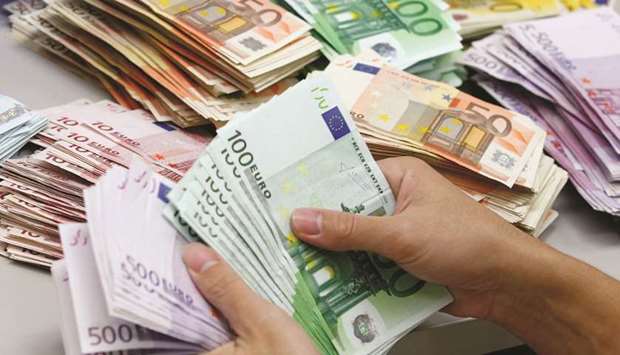The euro lost ground yesterday as investors worried about looming political infighting in Germany after an election that won Angela Merkel a fourth term as chancellor, but also gave a hard-right opposition party parliamentary seats for the first time.
The dollar index rose 0.49%, with the euro down 0.85% to $1.1851.
“The markets’ initial reaction to the outcome of the German federal election has been negative,” said Fawad Razaqzada, an analyst at Forex.com. Merkel’s “poor showing” was weighing on the euro, he said.
Major equity markets across Europe were also lower by the end of trading although Frankfurt managed a stable finish, partly thanks to the eurozone currency’s weakness which tends to favour exporters.
London’s FTSE 100 closed 0.1% down at 7,301.29 points, Frankfurt’s DAX 30 was flat at 12,594.81 points, Paris’ CAC 40 ended 0.3% down at 5,267.13 points, while the EURO STOXX 50 closed 0.1% down at 3,537.81 points.
Sentiment was not helped by Wall Street which, worried by Germany but also by Japan after Prime Minister Shinzo Abe called a snap election, turned resolutely lower approaching midday in New York.
Markets had already fully priced in a win for Merkel ahead of Sunday but her score, and that of the opposition AfD party, turned it into an “unconvincing election victory”, said London Capital Group analyst Jasper Lawler.
A dent in German business confidence, as reported by the Ifo institute yesterday, also dragged on the single currency, analysts said.
But they also cautioned against excessive pessimism, saying that overall, positive sentiment prevailed towards Europe’s biggest economy.
“While Germany looks set for lengthy coalition negotiations... we don’t expect political uncertainty to materially dent business sentiment or economic growth,” said Stephen Brown, economist at Capital Economics research group.
Investors had much to digest following the weekend break, including also Moody’s decision on Friday to cut Britain’s long-term credit rating, citing economic uncertainty sparked by complex Brexit negotiations and the likelihood of weaker UK public finances.
Oil prices surged as dealers said the outlook for further Opec output cuts was promising.
Earlier yesterday, UAE Energy Minister Suheil al-Mazrouei said that Opec will discuss extending production cuts that have boosted oil prices and imposing output quotas on all cartel members at a November meeting in Vienna.
Earlier, stocks on Japan’s main index rallied on a weaker yen as traders bet correctly on Prime Minister Shinzo Abe calling a snap election — but other Asian markets struggled following a weekend of tense exchanges between US President Donald Trump and North Korea’s Kim Jong-Un.
New Zealand’s main stocks index, meanwhile, won 0.7% despite uncertainty following a weekend vote that left the country with a hung parliament.

A bank employee counts euro notes in Frankfurt. The euro was down 0.85% to $1.1851 yesterday.
